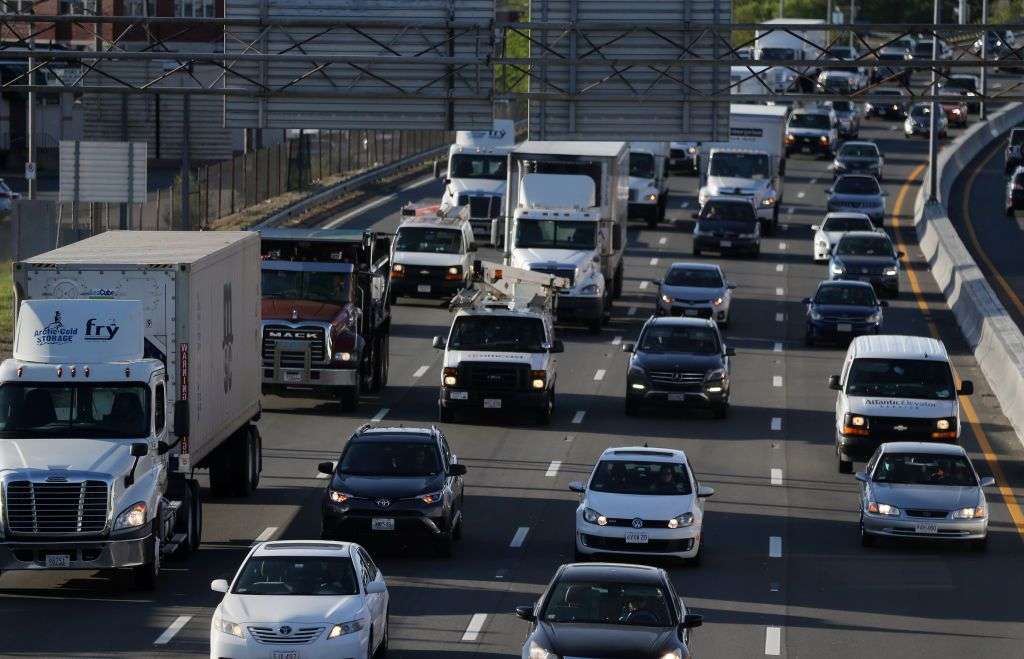Ghana’s transport sector could lose an estimated $3.9 billion due to damage caused by climate risks in the sector by 2050, with the potential damage being thrice the investment of $1.3 billion made in the sector, according to a new report.
The report estimates that heightened drought presents risks to future energy availability of about a quarter of a million people in rural Ghana, owing to a reliance on wood fuel for household use. In this light, climate risks threaten major components of electricity generation and transmission due to droughts and flooding.
Noting these outcomes, the report therefore offers a roadmap that could prevent the worst from happening. It highlights extensive efforts by the government to counter climate risks. To avert a climate crisis, the national assessment proposes 35 adaptation options for funders and investors to invest in Ghana’s future, offering impactful, evidence-based adaptation projects and enabling environment interventions.
The report titled, “Ghana: Roadmap for Resilient Infrastructure in a Changing Climate” was carried out under the Africa Adaptation Acceleration Program, a partnership of the African Development Bank Group and the Global Center on Adaptation, with support from the United Nations Office for Project Services, the United Nations Environment Program, and the University of Oxford’s Environmental Change Institute.
“Extreme weather and rapid changes to Ghana’s climate present a profound risk to key sectors of Ghana’s socio-economic development. Infrastructure in these sectors are the bedrock of the country’s economic growth and development,” said Dr. Kwaku Afriyie, Minister of Science, Environment, Technology and Innovation.

Road Map’s Action for Implementation
The roadmap also defines actions for implementation, a key one being financing, by highlighting a total of 82 funds (worth approximately US$274 billion) with the potential to finance infrastructure in Ghana. Of the 82 funds identified, the government has over the last 10 years, had “existing relationship” with 44 per cent of the funds. This shows that 46 new funding opportunities exist that can increase the range of options for infrastructure financing available to the Government of Ghana.
“The Government of Ghana therefore invites Investors/Financiers to partner with us to implement the identified prioritised climate resilience and adaptation projects,” Dr. Afriyie said.
Based on the roadmap, these risks are supposed to be addressed through targeted adaptation options in the built and natural environments, including nature-based solutions. It also defines institutional interventions required to ensure the optimum effectiveness of adaptation measures in the country.
Professor Patrick Verkooijen, CEO of the Global Center on Adaptation, said:
“Given how we know the climate crisis is evolving, these are very alarming statistics. But this is not the full story. For us, at the Global Center on Adaptation, the real story on climate adaptation in Africa is a story of resilience, of responsibility, of solidarity, of opportunities for a safer, greener, more prosperous continent. It is this story that is captured in the roadmap we are launching today.”
Patrick Verkooijen
Relating to the story of climate change in Ghana, severe droughts and flooding have occurred in the last two decades, some of which have had severe economic and social impacts. The projected impacts of climate change are likely to intensify pressure on the country’s existing dam infrastructure, yielding severe consequences for river runoff, which could affect over 1.3 million people, mostly women and children, the report indicates.
“Climate impacts are projected to lead to increased investment for infrastructure, particularly water storage, flood defenses, and water supply and sanitation, but, in the long run, investment in adaptation will reduce the need for costly retrofitting while reducing upfront costs,” said Anthony Nyong, Senior Regional Director for Africa at the Global Center on Adaptation.
READ ALSO: Experts React to Measures Outlined by Gov’t to Fix Economic Challenges





















